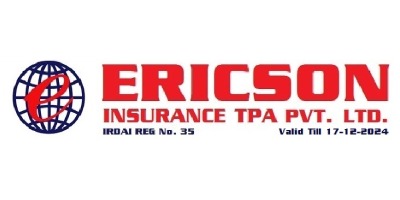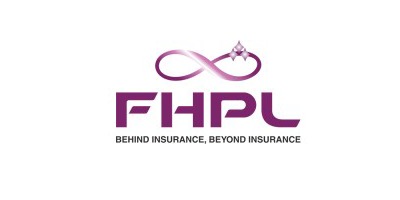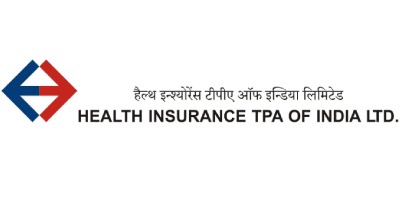About Us
Welcome To Dr. Suresh Garg - Eye Care Hospital in Delhi
Dr. Suresh Garg – Eye & Laser Hospital is a leading eye care center in Delhi, India. The hospital is known for its state-of-the-art facilities and advanced treatments for a wide range of eye problems. Dr. Suresh Garg, the founder of the hospital, is a renowned ophthalmologist with over 36 years of experience in the field of eye care.
He is a pioneer in refractive surgery and has successfully performed over 20,000 Lasik surgeries. He has also been honored with several awards and recognitions for his outstanding contributions to the field of ophthalmology.
40+
Years Of Experience
1M+
Patient Treated
100K+
Surgery Done
3+
Centers
Eye Issues
Main Symptoms of Eye Issues

Red Eyes
Bloodshot eyes, often known as red eyes, signify various health conditions.

Dry Eyes
When tears can't adequately lubricate the eye, dry eye develops.

Blurry Vision
Blurry vision is a visual condition in which objects appear out of focus or hazy.
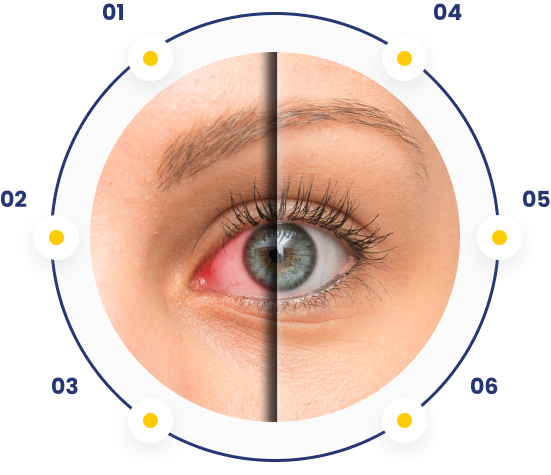
Floaters
Floaters are small, dark specks or shapes that appear to float in a person's field of vision. They are commonly described as spots, strings, or cobwebs drifting across the visual field.

Field Loss
Field loss, also known as visual field loss or peripheral vision loss, refers to a condition in which an individual experiences a decrease in their visual field.

Strabismus Or Squint
It is also known as squint or crossed eyes is a condition in which the eyes do not properly align with each other.

Get Diseases Treatment
It is crucial to promptly seek appropriate care for any type of eye ailment, regardless of its severity. Dr. Suresh Garg Eye Hospitals provides access to specialists who possess extensive expertise in addressing various eye-related issues. You can learn about different eye conditions and the associated warning signs by exploring our resources.
Cataract
A cataract is a disease that affects the eye's lens, causing it to become cloudy and leading to blurry vision.
Glaucoma
Glaucoma is a group of eye diseases that damages the optic nerve and can cause vision loss and blindness.
Diabetic Retinopathy
Diabetic retinopathy is an eye disease caused by high blood sugar levels that can damage the blood vessels in the retina.
Corneal Ulcer (Keratitis)
It also known as keratitis, is a painful and often serious condition that involves inflammation and damage to the cornea of the eye.
Fungal Keratitis
It is a type of eye infection caused by a fungus, It affects the cornea, which is the clear, dome-shaped surface that covers the front of the eye.
Macular Hole
A macular hole is a condition that affects the central part of the retina, which is called the macula. can blur the central vision.
Retinal Detachment
Retinal detachment is a serious eye condition where the retina separates from the underlying tissue.
Squint
Squint, also known as strabismus, is a condition that affects the alignment of the eyes.
Pterygium or Surfers Eye
Pterygium, also known as surfer's eye disease, is a non-cancerous growth of the conjunctiva that can affect vision.
Computer Vision Syndrome
(CVS) It is a condition that results from prolonged computer usage, causing eye strain, headaches, and blurred vision.
Services
Choose Our Procedure
Dr. Suresh Garg - Eye Hospital in Delhi offers the best eye care services in Delhi, India. The hospital provides a wide range of services including Cataract, Retina, Cornea, Spectacles Removal, Glaucoma, Squint & Pediatric Ophthalmology surgeries.
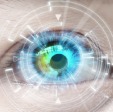
01
Blade free Laser Cataract Surgery
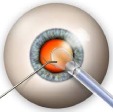
02
Micro Incision Cataract Surgery
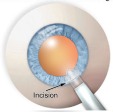
03
Phacoemulsification Cataract Surgery
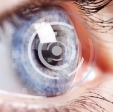
04
Multifocal and Toric Lens with Affordable package
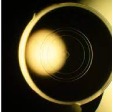
05
EDOF (Extended Depth of Focus) Lens Implants
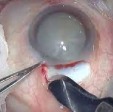
06
Small Incision Cataract Surgery
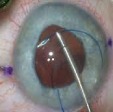
07
Scleral fixated IOL implants
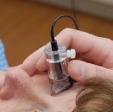
08
Ultrasound and Immersion A-Scan
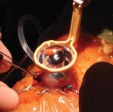
01
MIVS (Micro Incision Vitrectomy Surgery)
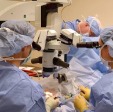
02
Hi-Speed Vitrectomy (8000 CPM)
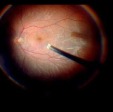
03
Ultra-High Speed Vitrectomy
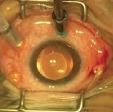
04
Bimanual Diabetic Vitrectomy
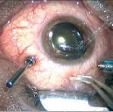
05
Bimanual Vitreo-Retinal Surgery
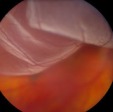
06
Retinal Detachment Surgery
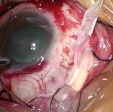
07
Scleral Buckling Surgery
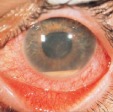
08
Uvea Clinic
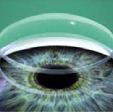
01
Corneal Transplantation
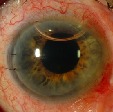
02
Lamellar Keratoplasty

03
Pterygium Surgery
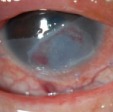
04
Amniotic Membrane Graft
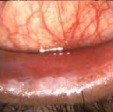
05
Mucous Membrane Graft
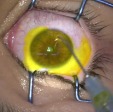
06
Collagen Cross-linking
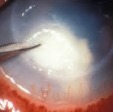
07
Ulcer Scrapping & Microbiology
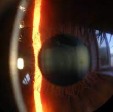
08
Slit Lamp Photography
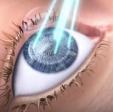
01
Contoura Vision LASIK
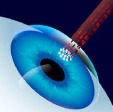
02
Bladefree LASIK
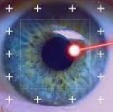
03
Touchless LASER (PRK)
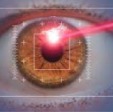
04
Aspheric LASIK
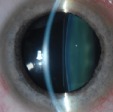
05
Implantable Contact Lens (ICL)
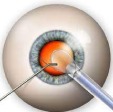
06
Clear Lens Extraction (CLE)/ReLEx
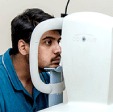
07
Oculus Pentacam
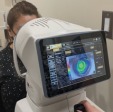
08
Corneal Topography
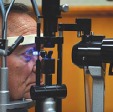
01
Applanation Tonometr
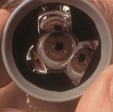
02
Gonioscopy
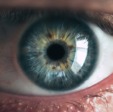
03
Diurnal Variation Test
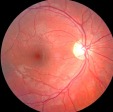
04
Optic Nerve Head (Optic Disc) Photography
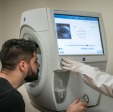
05
Zeiss Humphrey Visual Field Analyzer- Perimetry
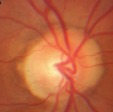
06
RNFL Analysis by OCT
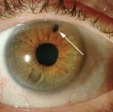
07
YAG Laser Peripheral Iridotomy (YAG-PI)
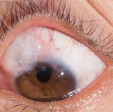
08
Glaucoma Filtration Surgery- Trabeculectomy
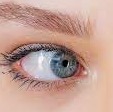
01
Strabismus (Squint) Surgery
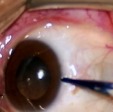
02
Eye muscle Surgery

03
Amblyopia therapy
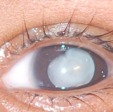
04
Retinopathy of Prematurity

05
Paediatric Vision Screening
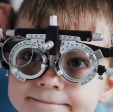
06
Eye exams and glasses for children
Our Doctors
Our Best Doctors
About Hospital
Welcome To Dr. Suresh Eye & Laser Hospital
Dr. Suresh Garg – Eye & Laser Hospital is a leading eye care center located in Delhi, India. The hospital is known for its state-of-the-art facilities and advanced treatments for a wide range of eye problems including cataract surgery, refractive surgery, glaucoma treatment, corneal transplantation, pediatric ophthalmology, and oculoplastic surgery.
Contact UsMr. Ali Baba From Nigeria
I was finally able to see thanks to the surgery done by Dr. Ankit Garg. He patiently counseled us about every step and made us feel we were In good hands.
Prakant Aggarwal
Dr. Suresh Garg is the best doctor for eyes-related issues. He has immense knowledge about eye disease & surgeries and is really helpful. He does not hide anything from patients.
Arika Vohra
I will highly recommend dr suresh sir for eye-related problems. Not only he sees patients with respect and patience but also treats them with a great human touch. He has immense knowledge and experience in his field.
Parth Aggarwal
An experienced eye doctor with empathy for his patients. I consult him for all my and my family's eye problems.
Jyoti Singh
Very good facilities and Doctor also very understanding and genius, staff's are so cooperative.
Sonia Gupta
Well-trained staff with all necessary facilities available for a complete eye examination. satisfied with the treatment received.
Appointment
Make an Appointment
Our Videos
What Our Patients Say
News & Articles
Get Every Single Update Blogs
Dramatically disseminate real-time portals rather than top-line action items. Uniquely provide access to low-risk high-yield products.
Read all the FAQ
Helping Patients From Around the Globe!
Dr. Suresh Garg Eye & Laser Hospital In Delhi specializes in treating a wide range of eye conditions, offering comprehensive care to patients. Here’s a detailed breakdown of the types of eye conditions Eye Hospital in Delhi specialize in:
- Refractive Errors: Addressing common vision problems like myopia (nearsightedness), hyperopia (farsightedness), and astigmatism through advanced procedures like LASIK, PRK, and implantable lenses.
- Cataracts: Providing surgical interventions for cataracts, including modern techniques such as phacoemulsification with intraocular lens implantation to restore clear vision.
- Glaucoma: Offering both medical and surgical management options for glaucoma, a group of eye conditions that can damage the optic nerve and lead to vision loss if left untreated.
- Retinal Disorders: Diagnosing and treating various retinal disorders such as diabetic retinopathy, macular degeneration, and retinal detachment using state-of-the-art imaging techniques and advanced surgical procedures.
- Corneal Diseases: Managing conditions affecting the cornea such as keratoconus, corneal dystrophies, and infections, utilizing innovative treatments like corneal collagen cross-linking and corneal transplants.
- Pediatric Ophthalmology: Specializing in diagnosing and managing eye problems in children, including amblyopia (lazy eye), strabismus (misaligned eyes), and pediatric cataracts.
- Oculoplastic Surgery: Providing surgical solutions for eyelid disorders, tear duct problems, orbital tumors, and aesthetic concerns through procedures like blepharoplasty, ptosis repair, and lacrimal surgery.
- Uveitis and Inflammatory Eye Diseases: Offering expert care for inflammatory conditions affecting the uvea and other structures of the eye, including autoimmune diseases and infections.
- Neuro-Ophthalmology: Diagnosing and managing visual problems related to neurological disorders, such as optic nerve disorders, double vision, and visual field defects.
- Low Vision Rehabilitation: Assisting patients with low vision conditions, such as age-related macular degeneration and retinitis pigmentosa, by maximizing their remaining vision through aids, devices, and therapy.Top of Form
Dr. Suresh Garg boasts an impressive 36 years of experience in performing laser eye surgeries, rendering him a seasoned veteran in the field. Throughout his extensive career, he has demonstrated a profound dedication to advancing his expertise and refining his skills in laser eye surgery techniques. His journey likely began with a comprehensive education in ophthalmology, where he would have laid the foundation for his surgical career by mastering the intricate anatomy of the eye and the principles of vision correction.
Over the decades of experience at Eye Care Center in Delhi, he would have accumulated a wealth of hands-on experience, honing his surgical prowess through countless procedures. Laser eye surgery demands precision, finesse, and a deep understanding of the nuances of each patient’s unique visual needs. Through years of practice, he has undoubtedly developed a keen eye for detail and an intuitive sense of how to achieve optimal outcomes for his patients.
At our Eye Hospital in Delhi, we offer a range of laser eye procedures tailored to meet the diverse needs of our patients. These procedures are designed to correct various vision problems and improve overall eye health. Here’s an overview of the different laser eye procedures available at our Eye & Laser Hospital In Delhi:
LASIK (Laser-Assisted in Situ Keratomileusis):
LASIK is one of the most popular laser eye surgeries worldwide. It involves creating a thin flap in the cornea using a microkeratome or femtosecond laser. The underlying corneal tissue is then reshaped using an excimer laser to correct refractive errors such as myopia (nearsightedness), hyperopia (farsightedness), and astigmatism. The flap is then repositioned, promoting rapid healing and minimal discomfort.
PRK (Photorefractive Keratectomy):
PRK is another refractive surgery option for correcting vision. Unlike LASIK, which involves creating a flap, PRK involves removing the outer layer of the cornea (epithelium) before reshaping the underlying corneal tissue with an excimer laser. This procedure is suitable for patients with thinner corneas or those who are not eligible for LASIK due to certain corneal characteristics.
SMILE (Small Incision Lenticule Extraction):
SMILE is a minimally invasive laser eye surgery that corrects myopia. It involves creating a small, precise incision in the cornea to extract a lenticule, which changes the corneal shape and corrects vision. SMILE offers faster recovery times and potentially fewer dry eye symptoms compared to traditional LASIK.
LASEK (Laser Epithelial Keratomileusis):
LASEK is similar to PRK but involves preserving a thin layer of the corneal epithelium, which is loosened and moved aside before the laser treatment. This layer is then repositioned over the treated area to promote healing. LASEK may be recommended for patients with thin corneas or specific corneal conditions.
Custom Wavefront-guided LASIK/PRK:
This advanced laser eye surgery utilizes wavefront technology to create a personalized treatment plan based on the unique characteristics of each patient’s eyes. It can address higher-order aberrations, providing sharper vision and reducing the risk of night vision disturbances.
Before undergoing any laser eye procedure, it’s essential for patients to undergo a comprehensive eye evaluation at Eye Care Center in Delhi to determine the most suitable treatment option based on their individual needs and eye health status. Our experienced ophthalmologists will guide patients through the entire process, from pre-operative assessments to post-operative care, ensuring the best possible outcomes and patient satisfaction.
Recovery time from laser eye surgery varies depending on several factors, including the type of procedure, individual healing ability, and adherence to post-operative care instructions. Here’s a detailed breakdown:
Procedure Type:
There are different types of laser eye surgeries, such as LASIK (Laser-Assisted In Situ Keratomileusis) and PRK (Photorefractive Keratectomy). LASIK typically has a shorter recovery period compared to PRK.
Initial Recovery Period:
Immediately after the surgery, patients may experience some discomfort, such as dryness, itching, or mild pain. This usually subsides within the first 24 to 48 hours.
Visual Recovery:
Many patients notice improved vision almost immediately after laser eye surgery, although it may continue to improve gradually over the following days and weeks. Full visual stabilization can take anywhere from a few days to several weeks, depending on individual healing factors. The doctor at Eye Care Hospital in Delhi will help you to know this.
Return to Normal Activities:
Most patients can resume normal activities, including work, within a day or two after LASIK. However, activities like swimming or heavy exercise may need to be avoided for a week or so to minimize the risk of complications.
Follow-up Appointments:
Patients are typically scheduled for follow-up appointments with their eye surgeon within the first week after surgery to monitor healing progress and address any concerns.
Long-Term Healing:
While vision may stabilize relatively quickly, it can take several months for the eyes to fully adjust and for any residual side effects, such as dry eyes or glare, to resolve completely.
Adherence to Post-Operative Care:
Following the surgeon’s instructions for post-operative care is crucial for optimal healing and recovery. This may include using prescribed eye drops, avoiding rubbing the eyes, and wearing protective eyewear as advised.
Most patients can expect to return to normal activities within a few days to a week after laser eye surgery, with vision continuing to improve over the following weeks and months. However, full recovery and stabilization may take several months, and adherence to post-operative care instructions is essential for a successful outcome.
LASIK, while an effective and popular procedure for vision correction, isn’t universally suitable for everyone. Here are some key criteria patients must meet before undergoing LASIK:
Stable Vision:
LASIK is typically recommended for individuals with stable vision, meaning their prescription hasn’t changed significantly in the past year. Fluctuating prescriptions can affect the accuracy of the procedure’s results.
Healthy Eyes:
Patients must have overall healthy eyes, free from conditions such as glaucoma, cataracts, or severe dry eye syndrome. These conditions can increase the risk of complications during or after LASIK surgery.
Adequate Corneal Thickness:
The cornea needs to have sufficient thickness to safely undergo LASIK. Thinner corneas may not provide enough tissue for reshaping, leading to potential complications.
Realistic Expectations:
Patients should have realistic expectations with Eye Care Hospital in Delhi about the outcome of LASIK surgery. While it can significantly reduce dependency on glasses or contacts, perfect vision without any aids cannot always be guaranteed.
Age:
While there isn’t a strict age limit for LASIK, it’s generally recommended for individuals over 18 years old, as their vision is more likely to be stable by this age. However, some older patients may not be suitable candidates due to age-related eye conditions.
Pregnancy or Nursing:
Women who are pregnant or nursing are typically advised to postpone LASIK surgery, as hormonal changes during pregnancy and breastfeeding can affect vision stability.
General Health:
Patients should be in good overall health to undergo LASIK surgery. Conditions such as autoimmune diseases or uncontrolled diabetes may increase the risk of complications.
Not Suitable for Severe Refractive Errors:
LASIK may not be suitable for individuals with very high refractive errors or extreme astigmatism. In such cases, alternative procedures like implantable collamer lenses (ICL) may be recommended.
Ultimately, the decision about whether LASIK is suitable for an individual depends on a thorough evaluation by an experienced eye care professional at Eye & Laser Hospital In Delhi. They can assess the patient’s specific circumstances and advise on the best course of action for vision correction.
the patient’s candidacy and ensure a successful outcome. These tests provide crucial information about the health of the eyes and help the surgeon determine the most appropriate treatment plan. Here are the key pre-operative tests commonly performed:
Comprehensive Eye Examination:
This includes a thorough assessment of the overall eye health, visual acuity, and refractive error measurement. It helps identify any underlying eye conditions such as cataracts, glaucoma, or corneal abnormalities that may affect the surgery.
Corneal Topography:
This test maps the curvature and shape of the cornea, which is essential for planning laser treatment. It helps detect irregularities like astigmatism, corneal ectasia, or thinning, which may impact the surgical procedure.
Pachymetry:
This measures the thickness of the cornea. It’s crucial to ensure that the cornea has adequate thickness for the chosen laser procedure and to minimize the risk of complications such as corneal ectasia or thinning post-surgery.
Pupil Dilation:
Dilating the pupils allows for a better view of the retina and helps assess its health. It also helps in determining the appropriate treatment zone during laser surgery.
Tear Film Evaluation:
Assessment of tear production and quality is important to prevent post-operative dry eye symptoms, which can affect visual recovery and comfort.
Medical History Review:
A thorough review of the patient’s medical history, including past eye conditions, surgeries, allergies, and medications, helps in assessing overall health and potential risks associated with the surgery.
Discussion of Expectations and Risks:
An essential part of the pre-operative evaluation involves discussing the patient’s expectations, understanding the potential risks and complications associated with the procedure, and ensuring informed consent.
These pre-operative tests are critical for evaluating the suitability of the patient for laser eye surgery, ensuring optimal outcomes, and minimizing the risk of complications. It’s important for patients to follow their surgeon’s recommendations and undergo these tests to ensure a safe and successful surgical experience.
Laser eye procedures, such as LASIK (Laser-Assisted in Situ Keratomileusis) and PRK (Photorefractive Keratectomy), are generally safe and effective for correcting vision problems like nearsightedness, farsightedness, and astigmatism. However, like any surgical procedure, they do carry certain risks and potential complications:
Dry Eyes:
One of the most common side effects post-LASIK is dry eyes, which can cause discomfort, blurry vision, and even difficulty in performing daily activities. This occurs due to the temporary disruption of nerves responsible for tear production during the surgery.
Undercorrection/Overcorrection:
Sometimes, the desired vision correction may not be achieved, leading to undercorrection (not enough correction) or overcorrection (excessive correction). This can necessitate further procedures or the continued use of glasses or contact lenses.
Visual Disturbances:
Some patients may experience glare, halos, or starbursts around lights, especially at night. These visual disturbances can affect activities such as driving and may persist for a few weeks to months after surgery.
Infection:
Although rare, there is a risk of developing an infection following laser eye surgery. Proper preoperative evaluation and adherence to postoperative care instructions can minimize this risk.
Corneal Flap Complications:
LASIK involves creating a thin flap on the cornea, which can sometimes dislodge or become wrinkled, leading to visual irregularities or complications that may require additional treatment.
Corneal Haze:
PRK, unlike LASIK, involves removing the outer layer of the cornea. This can result in the development of corneal haze, a clouding of the cornea, which may affect vision temporarily.
Regression:
In some cases, the initial improvement in vision achieved through laser eye surgery may regress over time, necessitating further interventions or a return to glasses or contact lenses.
Despite these potential risks, the vast majority of patients who undergo laser eye procedures experience significant improvement in their vision with minimal complications. It’s essential for individuals considering these surgeries to undergo thorough preoperative evaluation and discuss any concerns with their ophthalmologist at Eye & Laser Hospital In Delhi to make an informed decision.
The cost of laser eye surgery at Dr. Suresh Garg Eye & Laser Hospital can vary depending on several factors, including the specific type of procedure needed, the technology used, and any additional services or consultations required. Generally, laser eye surgery costs at Eye Hospital in Delhi typically range from a few hundred to a few thousand dollars per eye.
At Dr. Suresh Garg Eye & Laser Hospital, the exact cost of laser eye surgery will be determined during a comprehensive consultation with one of their experienced ophthalmologists. During this consultation, the doctor will assess the patient’s specific eye condition, discuss their goals and expectations for the surgery, and recommend the most suitable treatment option.
Common types of laser eye surgery offered at Dr. Suresh Garg Eye & Laser Hospital include LASIK (Laser-Assisted In Situ Keratomileusis), PRK (Photorefractive Keratectomy), and SMILE (Small Incision Lenticule Extraction). Each of these procedures at Eye Hospital in Delhi has its own associated costs, and the final price may also include pre-operative evaluations, post-operative care, and any necessary medications.
Yes, patients with certain medical conditions can still undergo laser eye surgery, but it depends on the specific condition and its severity. Laser eye surgery, such as LASIK or PRK, has become a popular option for correcting vision problems like nearsightedness, farsightedness, and astigmatism. However, patients with certain medical conditions need careful evaluation and consideration before proceeding with the surgery.
One of the primary considerations is the stability of the patient’s condition. Some medical conditions, such as diabetes or autoimmune disorders, can affect healing and increase the risk of complications after surgery. In such cases, thorough pre-operative evaluation and consultation with both an ophthalmologist at Eye Hospital in Delhi and the patient’s primary care physician or specialist are crucial.
Other conditions, such as cataracts or glaucoma, may require different treatments or procedures before laser eye surgery can be considered. In some instances, laser eye surgery may not be recommended at all, and alternative vision correction options may be explored.
After undergoing eye surgery, the timeline for noticing improvements in vision varies based on several factors, including the type of surgery performed at Eye Hospital in Delhi, the individual’s overall health, and the extent of the vision problem being addressed. Here’s a general overview:
Immediate Postoperative Period (Within 24 Hours):
In some cases, patients may experience blurry vision or discomfort immediately after surgery, which is normal. This is often due to swelling, medication effects, or the presence of a protective shield over the eye.
First Week Post-Surgery:
During this period, many patients begin to notice gradual improvements in their vision. However, it’s essential to follow postoperative care instructions diligently, including using prescribed eye drops, avoiding strenuous activities, and attending follow-up appointments.
Two to Four Weeks Post-Surgery:
By this time, many patients experience significant improvements in their vision as the eye heals and adjusts to the changes made during surgery. However, full recovery may take longer, especially for more complex procedures or conditions.
Long-Term Recovery:
While most patients notice improvements relatively soon after surgery at Eye Hospital in Delhi, it’s essential to understand that the full benefits of the procedure may not be realized immediately. Some individuals may continue to experience fluctuations in vision or other symptoms during the healing process, which can last several weeks to months.
Individual Variances:
It’s crucial to remember that every patient is unique, and their healing process may differ. Factors such as age, overall health, pre-existing conditions, and adherence to postoperative care instructions can all influence the timeline for visual improvement.
While some patients may notice immediate improvements after eye surgery, others may require more time for their vision to stabilize fully. Patience, along with close communication with your healthcare provider, is key during the recovery process.
Yes, Eye Hospital in Delhi typically provide follow-up care after laser eye surgery to ensure optimal recovery and outcomes for patients. The specific details of follow-up care may vary depending on the hospital’s protocols and the individual patient’s needs, but there are some general aspects that are commonly included:
Initial Postoperative Evaluation:
After the surgery, patients are usually scheduled for a follow-up appointment within the first 24 to 48 hours. During this visit, the surgeon will examine the eyes to assess healing progress and address any immediate concerns.
Medication Management:
Patients are often prescribed medicated eye drops to prevent infection, reduce inflammation, and promote healing. The surgeon will provide instructions on how to use these drops and may adjust the dosage or type of medication based on the patient’s response.
Monitoring Healing Progress:
Follow-up appointments are typically scheduled at regular intervals over the weeks and months following the surgery. These appointments allow the surgeon to monitor the eyes’ healing progress, assess visual acuity, and check for any complications or side effects.
Addressing Concerns:
Patients are encouraged to contact the Eye Hospital in Delhi if they experience any unusual symptoms or concerns during the recovery period. The hospital may provide a hotline or emergency contact number for patients to reach out to if they have questions or need assistance outside of scheduled appointments.
Educational Resources:
Hospitals may offer educational resources or support materials to help patients understand what to expect during the recovery process and how to care for their eyes post-surgery. This may include written instructions, online resources, or educational seminars.
Long-Term Follow-Up:
In some cases, patients may require long-term follow-up care to monitor their eye health and ensure the continued success of the surgery. This may involve periodic check-ups with the surgeon or referrals to other eye care specialists as needed.
Before and after undergoing laser eye surgery at Eye Hospital in Delhi, patients typically need to make several lifestyle adjustments to ensure optimal outcomes and minimize complications. These adjustments can vary depending on the type of laser eye surgery (such as LASIK, PRK, or SMILE) and individual circumstances, but some general guidelines apply:
1. Pre-surgery preparation:
- Patients should refrain from wearing contact lenses for a specified period before surgery, as contacts can alter the shape of the cornea.
- It’s advisable to arrange transportation for the day of surgery, as patients may experience blurry vision or discomfort immediately afterward.
- Patients should discuss any medications they are taking with their surgeon, as certain medications may need to be adjusted or discontinued temporarily.
2. Post-surgery precautions:
- Patients are typically advised to avoid rubbing their eyes to prevent irritation and injury to the cornea during the healing process.
- Swimming, hot tubs, and strenuous exercise should be avoided for a specified period after surgery to minimize the risk of infection and trauma to the eyes.
- Protecting the eyes from sunlight is crucial, so wearing sunglasses with UV protection is recommended, especially in the first few weeks following surgery.
3. Follow-up appointments and adherence to post-operative care instructions:
- Patients should attend all scheduled follow-up appointments to monitor healing progress and address any concerns promptly.
- Adhering to prescribed eye drops and medications is essential to promote proper healing and prevent infection or inflammation.
4. Adjustments to daily routines:
- Patients may need to take time off work or limit certain activities during the initial recovery period, as vision may be temporarily compromised.
- It’s essential to maintain good hygiene practices, such as washing hands frequently and avoiding exposure to dust or other irritants that could affect the eyes.
Overall, adopting these lifestyle changes before and after laser eye surgery can help patients achieve the best possible outcomes and enjoy long-term benefits of improved vision. However, it’s crucial for individuals to follow their surgeon’s specific recommendations and seek guidance if they have any concerns or questions.Top of Form
Dr. Suresh Garg Eye & Laser Hospital distinguishes itself from other eye care facilities in Delhi through a combination of advanced technology, specialized expertise, patient-centric care, and a legacy of trust. Here’s a breakdown of what sets it apart:
Cutting-edge Technology:
Dr. Suresh Garg Eye & Laser Hospital prides itself on staying at the forefront of technological advancements in eye care and the best Eye Hospital in Delhi. From state-of-the-art diagnostic equipment to advanced surgical techniques, the hospital offers patients access to the latest innovations in ophthalmology.
Specialized Expertise:
The hospital boasts a team of highly skilled ophthalmologists, surgeons, and support staff who are leaders in their respective fields. Whether it’s refractive surgery, cataract treatment, or complex retinal procedures, patients can trust that they are receiving care from experts with extensive experience and training.
Comprehensive Services:
Unlike some facilities that may specialize in specific areas of eye care, Dr. Suresh Garg Eye & Laser Hospital offers a wide range of services under one roof. From routine eye exams to specialized treatments for various eye conditions, patients can find comprehensive care tailored to their needs.
Patient-Centric Approach:
At the core of the Eye Hospital in Delhi philosophy is a commitment to patient satisfaction and well-being. From the moment patients walk through the doors, they are greeted with warmth and compassion. The staff takes the time to listen to patients’ concerns, explain treatment options thoroughly, and ensure they feel comfortable every step of the way.
Legacy of Trust:
With decades of service to the community, Dr. Suresh Garg Eye & Laser Hospital has earned a reputation for excellence and reliability. Patients trust the hospital not only for its technical expertise but also for its ethical practices and dedication to improving vision and quality of life.
Certainly! Financing options and payment plans are commonly offered by many clinics and medical centers to assist patients undergoing laser eye surgery in managing the cost of their treatment. These options are designed to make the procedure more accessible to a broader range of individuals who may not have the immediate financial means to cover the full expense upfront. Here’s a breakdown of how these financing options and payment plans typically work:
Financing Institutions:
Oftentimes, clinics partner with financial institutions or healthcare financing companies to provide patients with various loan options tailored to their needs. These loans may offer competitive interest rates and flexible repayment terms.
Credit Card Payments:
Some clinics accept credit card payments for laser eye surgery, allowing patients to spread out the cost over several months through their credit card’s installment plan or by paying off the balance gradually.
In-House Payment Plans:
Certain clinics may offer in-house payment plans directly to patients, enabling them to make fixed monthly payments over a specified period. These plans may or may not accrue interest, depending on the clinic’s policy.
Third-Party Financing Programs:
Patients may also have the option to utilize third-party financing programs specifically designed for medical procedures like laser eye surgery. These programs often offer low or no-interest payment plans for qualified individuals.
Insurance Coverage:
While laser eye surgery is typically considered an elective procedure and may not be covered by standard health insurance plans, some patients may have coverage through vision insurance or flexible spending accounts (FSAs) or health savings accounts (HSAs). Patients are advised to check with their insurance provider to determine coverage eligibility.
Patients interested in scheduling a consultation with Dr. Suresh Garg to address their eye care needs have several convenient options available to them. Firstly, they can contact Dr. Garg’s clinic directly via phone or email. Most medical facilities have a dedicated reception staff who can assist patients in setting up appointments. Patients can call the clinic’s phone number during business hours and speak with a receptionist who will guide them through the scheduling process. Alternatively, they can send an email inquiry with their contact information and preferred appointment times, and the clinic staff will respond promptly to confirm the appointment.

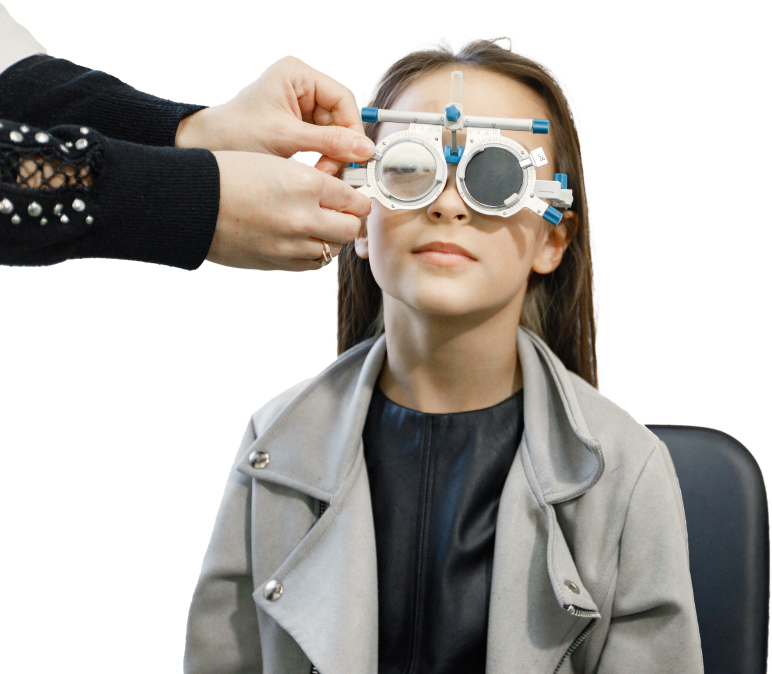

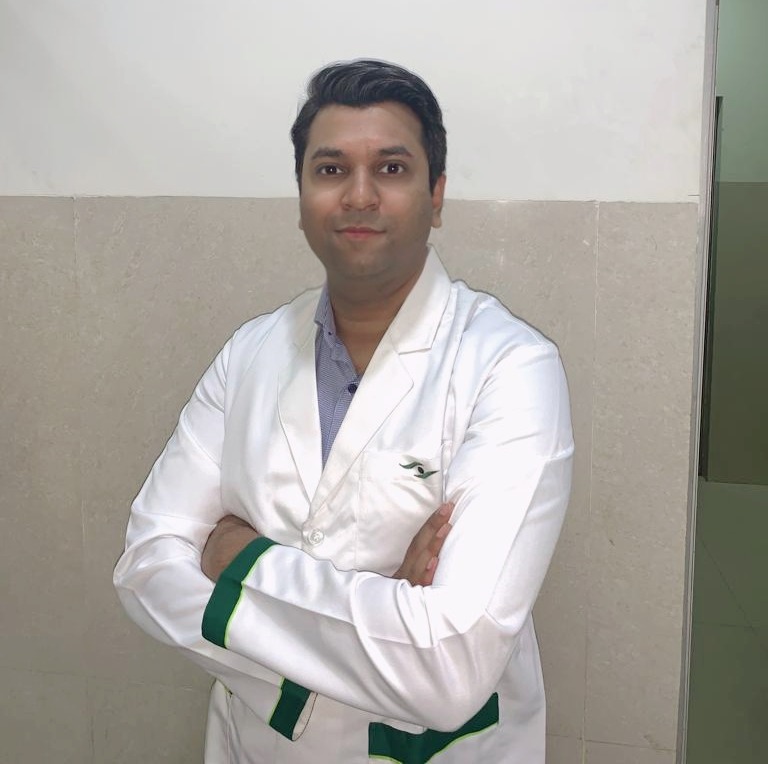













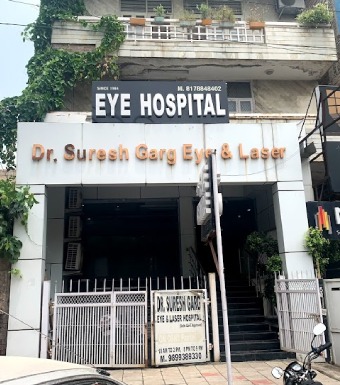
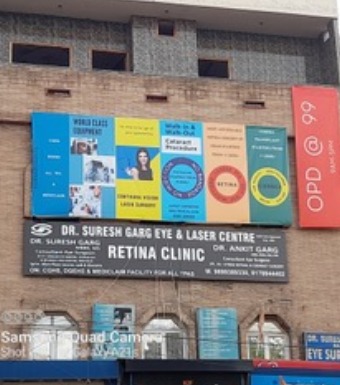
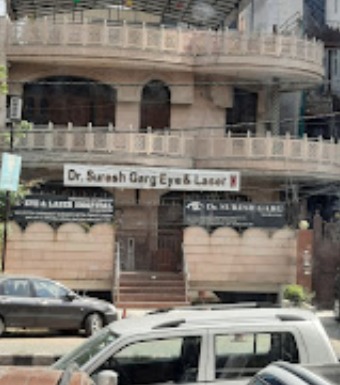
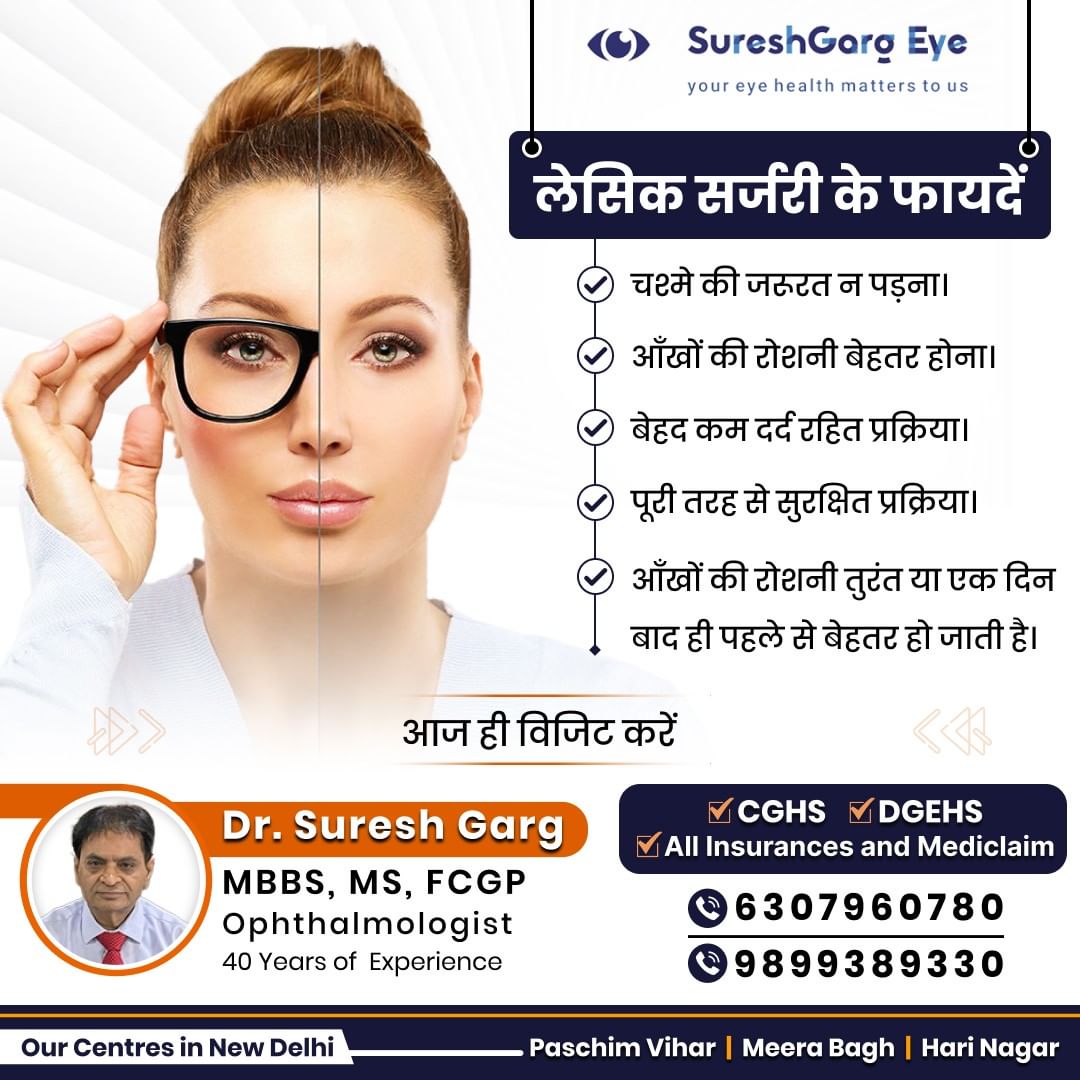

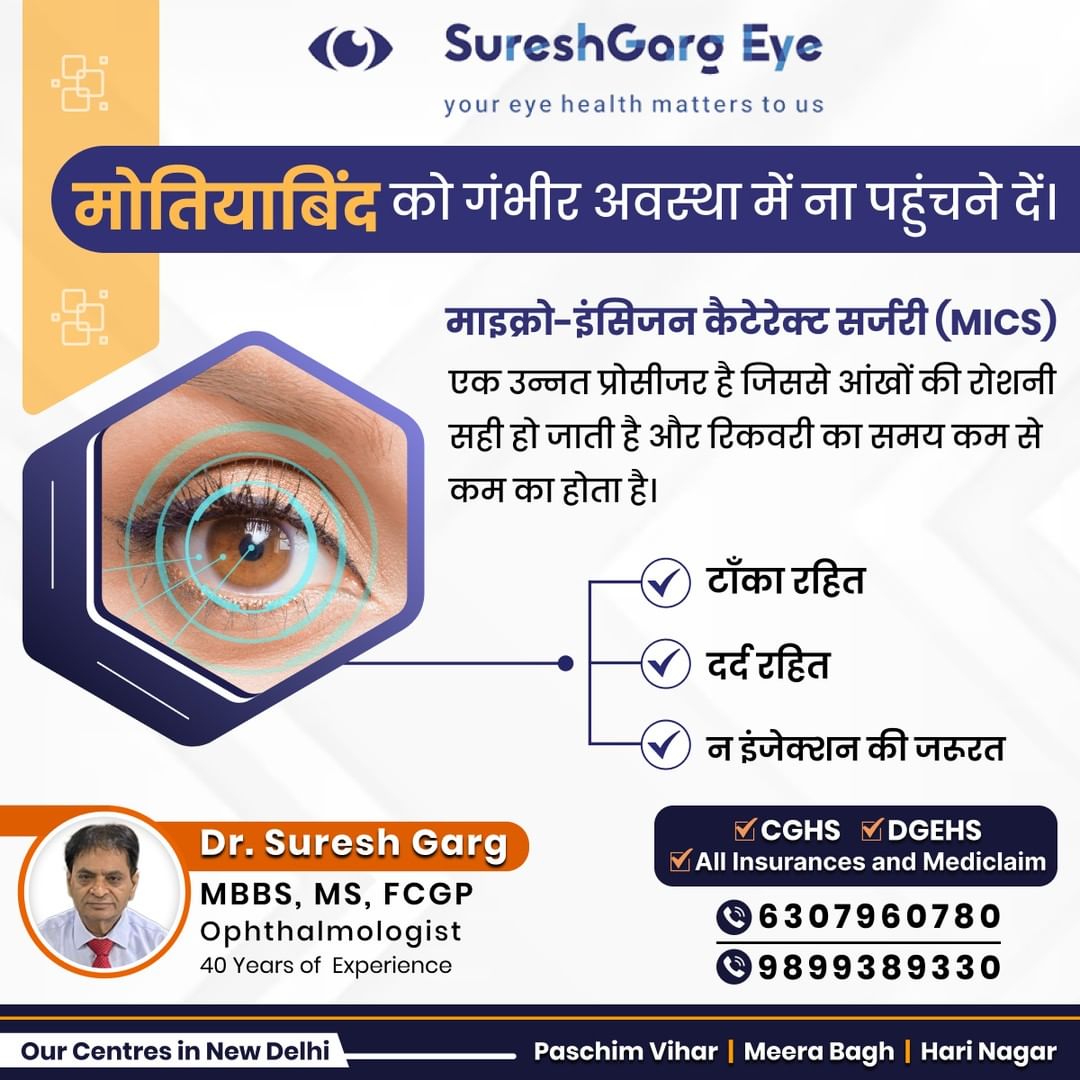





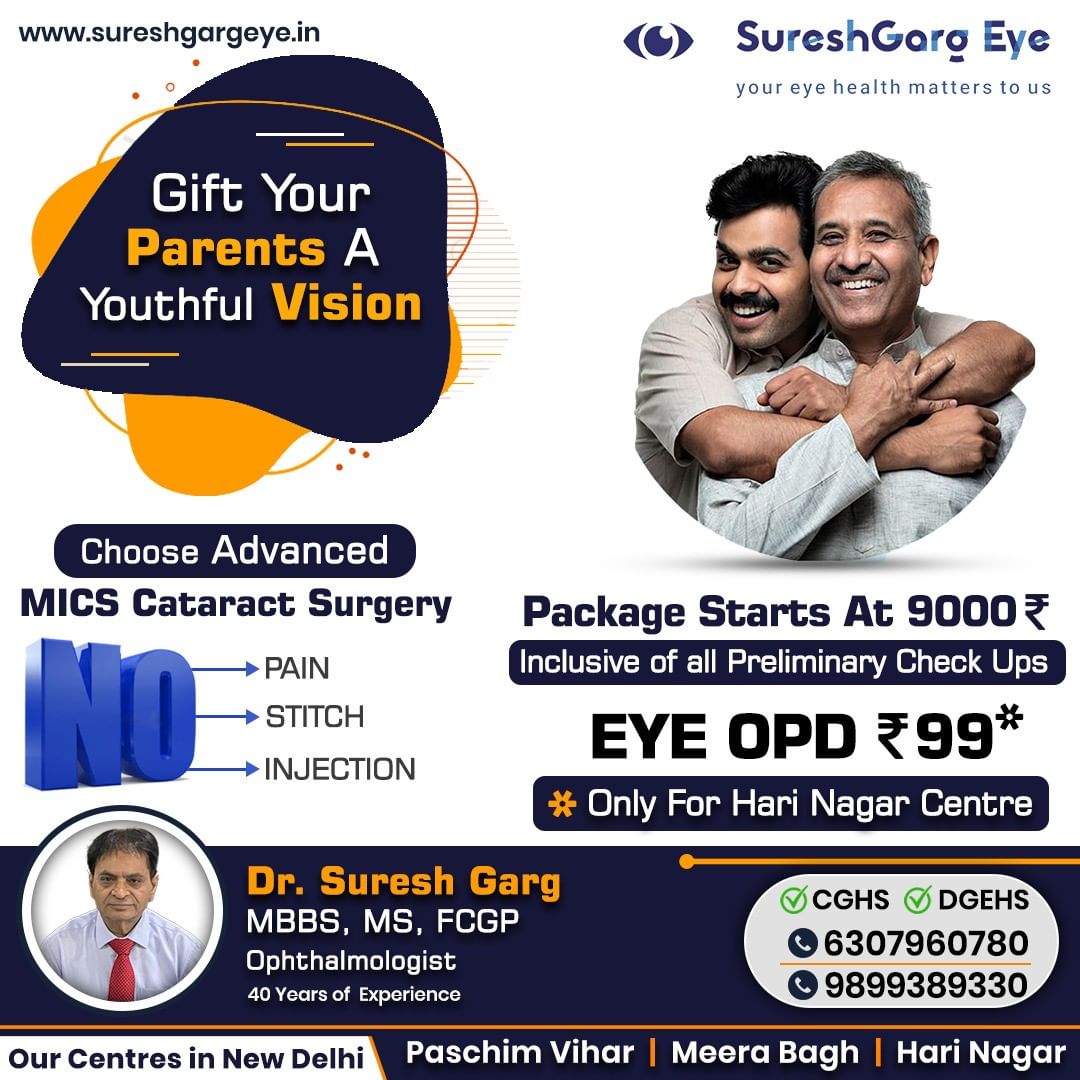



 Follow on Instagram
Follow on Instagram










